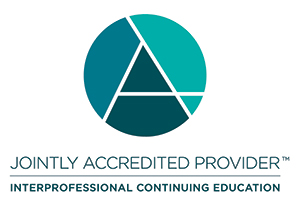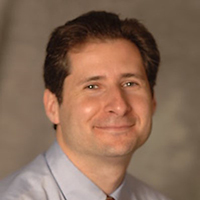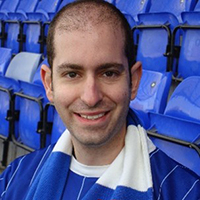Please note: AABB reserves the right to make updates to this program.
Live Program Date: Wednesday, March 1, 2023 - On-Demand Available
Program Number: 23EL-810
Director/Moderator: Elizabeth St. Lezin, MD, Professor of Laboratory Medicine, Department of Laboratory Medicine, University of California San Francisco, San Francisco, CA
Speakers:
There has been growing interest in the use of massive transfusion protocols and whole blood for use in both trauma and non-trauma patients. Should these patients receive whole blood? This program will first review the latest literature on the prehospital resuscitation of trauma patients with massive hemorrhage. Second, the program will review the state of the evidence for the use of whole blood and component therapy in trauma and non-trauma patients. The purpose of the program is to aid transfusion services and blood banks in planning for the optimal support of bleeding patients in both trauma and non-trauma settings.
After participating in this educational activity, participants should be able to:
Please note: if you registered for the live eCast you do not need to register for the on-demand eCast (access to the on-demand eCast was included with the live eCast registration.
| Single Viewer | Register |
| Group Viewing | Register |
This activity is eligible for one and a half (1.5) continuing education credit/contact hour for Physicians, California Nurses, California Lab Personnel, Florida Lab Personnel and General Participation credit. AABB reserves the right to reduce or increase the number of credits granted based on the final activity duration. For more information on each credit type please visit our Continuing Education Credits webpage.
There is no financial support for this activity.

In support of improving patient care, this activity has been planned and implemented by the Association for the Advancement of Blood & Biotherapies (AABB), which is jointly accredited by the Accreditation Council for Continuing Medical Education (ACCME), the Accreditation Council for Pharmacy Education (ACPE), and the American Nurses Credentialing Center (ANCC), to provide continuing education for the healthcare team.
Physicians (ACCME): AABB designates this live activity for a maximum of one and a half (1.5) AMA PRA Category 1 CreditTM. AABB designates this enduring activity for a maximum of one and a half (1.5) AMA PRA Category 1 CreditTM. Physicians should claim only the credit commensurate with the extent of their participation in the activity.
Claiming Credit
Live Activity - Upon completion of the live activity, you will receive instructions to complete your evaluation, which is necessary to claim credit and receive your certificate of attendance/completion (credit must be claimed by the date provided in the instructions). The evaluation can be found by logging into the AABB Education Platform.
Enduring Activity - Once the enduring (on-demand) program is available, you will receive instructions to access the AABB Education Platform. Upon completion of viewing the enduring activity, you will need to complete the evaluation, which is necessary to claim credit and receive your certificate of completion (credit must be claimed by the date provided in the AABB Education Platform).
Program & Credit Expiration Dates:
Disclosure Declaration
It is the policy of the Association for the Advancement of Blood & Biotherapies to ensure independence, balance, objectivity, and scientific rigor and integrity in all of its CE activities. Faculty must disclose to the participants any relationships with commercial companies whose primary business is producing, marketing, selling, re-selling, or distributing healthcare products used by or on patients. AABB has evaluated, identified, and mitigated any potential conflicts of interest through a rigorous content validation procedure, use of evidence-based data/research, and a multidisciplinary peer review process. The following information is for participant information only. It is not assumed that the presence of such relationships will have a negative impact on the presentations.
Disclosures for the planners of this event can be found here. Disclosures for the program faculty, peer reviewers, and AABB personnel are provided at the beginning of the program.
 Dr. Richard Haspel is currently the Medical Director of the Stem Cell Processing Laboratory and Vice Chair for Education in the Department of Pathology at Beth Israel Deaconess Medical Center (BIDMC). He is also a Professor of Pathology at Harvard Medical School. He developed and published a curriculum related to teaching evidence-based transfusion medicine and has given presentations on the use of blood products in trauma and non-trauma settings. He has also led international studies to evaluate the transfusion medicine knowledge of internal medicine, pediatric and hematology physician trainees using a validated survey and exam.
Dr. Richard Haspel is currently the Medical Director of the Stem Cell Processing Laboratory and Vice Chair for Education in the Department of Pathology at Beth Israel Deaconess Medical Center (BIDMC). He is also a Professor of Pathology at Harvard Medical School. He developed and published a curriculum related to teaching evidence-based transfusion medicine and has given presentations on the use of blood products in trauma and non-trauma settings. He has also led international studies to evaluate the transfusion medicine knowledge of internal medicine, pediatric and hematology physician trainees using a validated survey and exam.
 Dr. Elizabeth (Beth) St. Lezin is a Professor of Laboratory Medicine, Assistant Chief Laboratory Medicine and Director of Transfusion Service at the University of California San Francisco. Her research and clinical interests include clinical transfusion medicine, health and quality of life outcomes in red cell transfusion recipients, laboratory management and quality improvement in the clinical laboratory, and genetics of complex cardiovascular traits. Dr. St. Lezin has been the recipient of multiple awards including: Sudikow Award for Quality Improvement, UCSF/Mt. Zion Medical Center 1998; Laboratory Medicine Faculty Teaching Award 2016; and UCSF Center for Faculty Educators Certificate in Clinical Teaching 2018.
Dr. Elizabeth (Beth) St. Lezin is a Professor of Laboratory Medicine, Assistant Chief Laboratory Medicine and Director of Transfusion Service at the University of California San Francisco. Her research and clinical interests include clinical transfusion medicine, health and quality of life outcomes in red cell transfusion recipients, laboratory management and quality improvement in the clinical laboratory, and genetics of complex cardiovascular traits. Dr. St. Lezin has been the recipient of multiple awards including: Sudikow Award for Quality Improvement, UCSF/Mt. Zion Medical Center 1998; Laboratory Medicine Faculty Teaching Award 2016; and UCSF Center for Faculty Educators Certificate in Clinical Teaching 2018.
 Dr. Mark Yazer is a Professor of Pathology and an Associate Director of the Centralized Transfusion Service. The division provides clinical transfusion support to the UPMC health system hospitals and is actively involved in its Patient Blood Management Program. Dr. Yazer has general expertise in the area of transfusion medicine with particular clinical and research expertise in blood product utilization in trauma and massive bleeding resuscitation, and in Patient Blood Management. Dr. Yazer's research interests include blood utilization in trauma, whole blood, antibody titers, and patient blood management. He has received grant funding from the NIH, US DoD.
Dr. Mark Yazer is a Professor of Pathology and an Associate Director of the Centralized Transfusion Service. The division provides clinical transfusion support to the UPMC health system hospitals and is actively involved in its Patient Blood Management Program. Dr. Yazer has general expertise in the area of transfusion medicine with particular clinical and research expertise in blood product utilization in trauma and massive bleeding resuscitation, and in Patient Blood Management. Dr. Yazer's research interests include blood utilization in trauma, whole blood, antibody titers, and patient blood management. He has received grant funding from the NIH, US DoD.